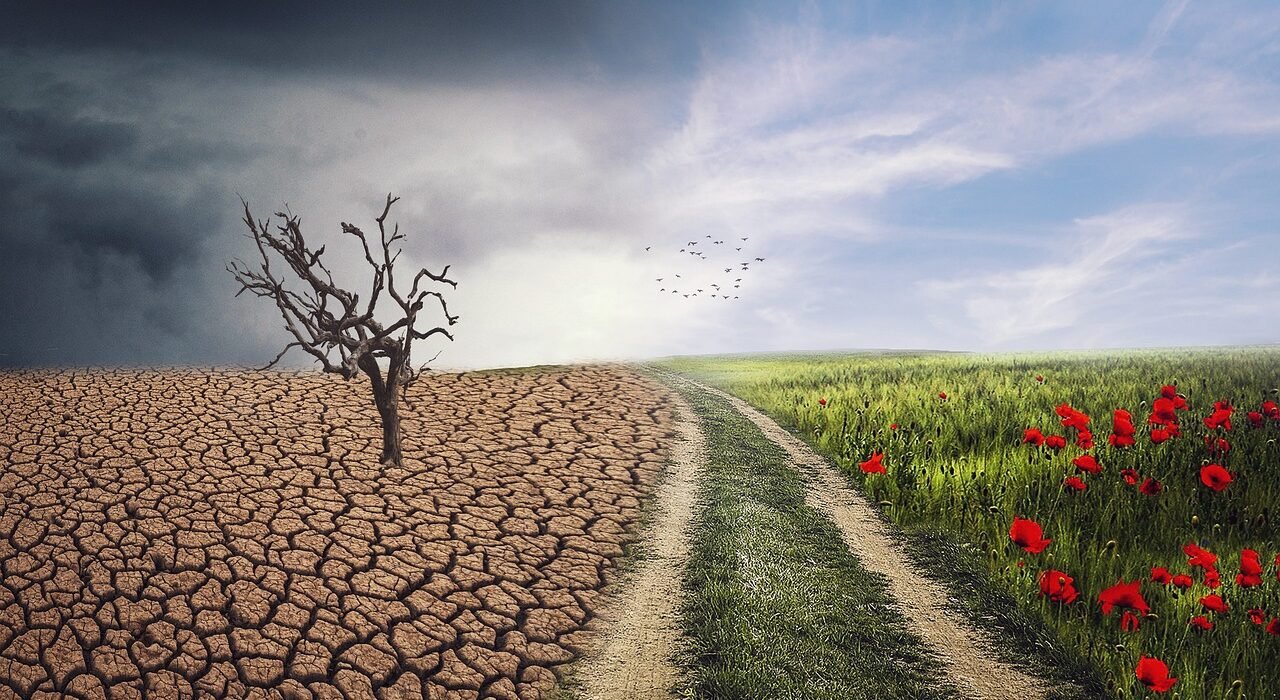Introduction: Immediate Action Needed
The time has come for humanity to take responsibility for our planet’s future. Climate change is an urgent and undeniable global crisis, and its consequences are already evident. It is imperative that we recognize our role in causing this crisis and actively work towards finding solutions. As stewards of the Earth, we hold the power to make a difference. Will we rise to the challenge and secure a sustainable future for generations to come? The answer lies in our hands. the urgency of climate change necessitates our immediate action and unwavering commitment. By embracing human responsibility and actively engaging in solutions, we can mitigate the devastating effects of climate change in the following ways.
Also visit: 60 Nature Captions for Instagram: Share the words, Spread Awareness.
Understanding the Climate Change Crisis
Climate change, the long-term alteration of Earth’s climate patterns, is a result of human activities, primarily the emission of greenhouse gases. The burning of fossil fuels, deforestation, and industrial practices contribute to the accumulation of these gases in the atmosphere, trapping heat and causing the Earth’s temperature to rise. This leads to a range of devastating effects, including extreme weather events, rising sea levels, loss of biodiversity, and disruptions to ecosystems.
The Urgency of Action
Every passing moment is crucial in the fight against climate change. We must act swiftly and decisively to limit global warming to well below 2 degrees Celsius above pre-industrial levels, as outlined in the Paris Agreement. Delaying action will only exacerbate the challenges we face, making it more difficult to mitigate the impacts of climate change and protect vulnerable communities. The time for procrastination is over – the time for action is now.
Our Responsibility as Global Citizens
As inhabitants of this planet, we have a collective responsibility to address climate change. Each individual, community, government, and industry has a role to play in reducing greenhouse gas emissions, adopting sustainable practices, and promoting renewable energy sources. We cannot afford to passively wait for others to act; it is incumbent upon us to take proactive steps and be catalysts for change.
The Power of Sustainable Choices
Our daily choices and actions have a direct impact on the environment. By embracing sustainable lifestyles, such as conserving energy, reducing waste, and supporting eco-friendly initiatives, we contribute to the solution. Small changes in our consumption patterns, transportation habits, and dietary choices can make a significant difference when multiplied across millions of people. Together, we have the power to create a greener, more sustainable world.
Collaboration and Innovation
Addressing climate change requires collaborative efforts on a global scale. Governments, businesses, NGOs, and individuals must come together, share knowledge, and invest in innovative solutions. This involves supporting research and development of clean technologies, implementing effective policies, and fostering international cooperation. By working together, we can unlock the potential for transformative change and build a resilient future.
Protecting Vulnerable Communities
Climate change disproportionately affects vulnerable communities, including low-income populations, indigenous peoples, and coastal regions. As responsible global citizens, we must prioritize the needs of these communities and work towards equitable solutions. This involves supporting adaptation measures, providing access to clean water and sustainable infrastructure, and empowering communities to participate in decision-making processes. By addressing climate change with a focus on social justice, we can build a more inclusive and resilient society.
Education and Awareness
Promoting climate literacy is essential for fostering a culture of environmental responsibility. We need to educate ourselves and others about the causes and consequences of climate change, as well as the available solutions. Schools, universities, and educational institutions play a vital role in integrating climate change into curricula and promoting environmental stewardship. Additionally, raising awareness through media campaigns, community outreach, and digital platforms can inspire collective action and empower individuals to make informed choices.
Transitioning to Renewable Energy
One of the most effective ways to combat climate change is by transitioning from fossil fuels to renewable energy sources. Investing in solar, wind, and hydroelectric power can significantly reduce greenhouse gas emissions and promote sustainable development. Governments and businesses should prioritize renewable energy investments, provide incentives for clean energy adoption, and phase out subsidies for fossil fuels. By embracing clean energy technologies, we can create jobs, reduce pollution, and mitigate the impacts of climate change.
Preserving and Restoring Ecosystems
Ecosystems play a crucial role in regulating the Earth’s climate. Protecting and restoring forests, wetlands, and other natural habitats is essential for mitigating climate change. Forests act as carbon sinks, absorbing and storing vast amounts of carbon dioxide. By preventing deforestation and implementing sustainable land management practices, we can preserve biodiversity and reduce greenhouse gas emissions. Furthermore, restoring degraded ecosystems enhances their resilience and strengthens their capacity to absorb carbon, contributing to climate change mitigation efforts.
Policy and International Cooperation
Strong and effective policies are fundamental in addressing climate change. Governments must enact comprehensive climate legislation, set ambitious emission reduction targets, and implement mechanisms for monitoring progress. Additionally, international cooperation is crucial for tackling a global issue like climate change. Nations must collaborate, share best practices, and commit to multilateral agreements to achieve meaningful results. By fostering political will and creating an enabling policy environment, we can accelerate the transition to a sustainable future.
Sustainable Agriculture and Food Systems
Addressing climate change also requires a transformation of our agricultural and food systems. Sustainable agricultural practices, such as organic farming, agroforestry, and precision agriculture, can reduce greenhouse gas emissions, promote soil health, and conserve water resources. Moreover, shifting towards plant-based diets and reducing food waste can significantly lower the carbon footprint associated with food production. By promoting sustainable agriculture and embracing mindful food choices, we can mitigate the environmental impact of our food systems.
Resilience and Adaptation Strategies
While efforts to mitigate climate change are essential, we must also recognize the need to adapt to its existing and future impacts. Investing in resilience measures, such as building climate-resilient infrastructure, implementing early warning systems, and developing robust disaster preparedness plans, is crucial. Additionally, integrating climate considerations into urban planning, water resource management, and public health policies can enhance our ability to cope with changing climate conditions. By prioritizing adaptation alongside mitigation, we can build communities that are better equipped to withstand and recover from climate-related challenges.
Our Message: Act Now for Forging a Sustainable Path Forward
In the face of the climate change crisis, human responsibility is not only an ethical imperative but a practical necessity. By comprehensively addressing the multifaceted challenges of climate change, including sustainable agriculture, resilience-building, education, renewable energy, ecosystem preservation, and policy development, we can forge a sustainable path forward. It requires a collective effort, where individuals, communities, businesses, and governments all have a role to play. Through our actions, we have the power to shape a resilient, equitable, and environmentally sustainable future. Let us act decisively, with a sense of urgency and purpose, for the well-being of our planet and generations to come. Together, we can create a legacy of responsible stewardship and ensure a prosperous future for all. Act now, for the fate of our planet rests in our hands.



